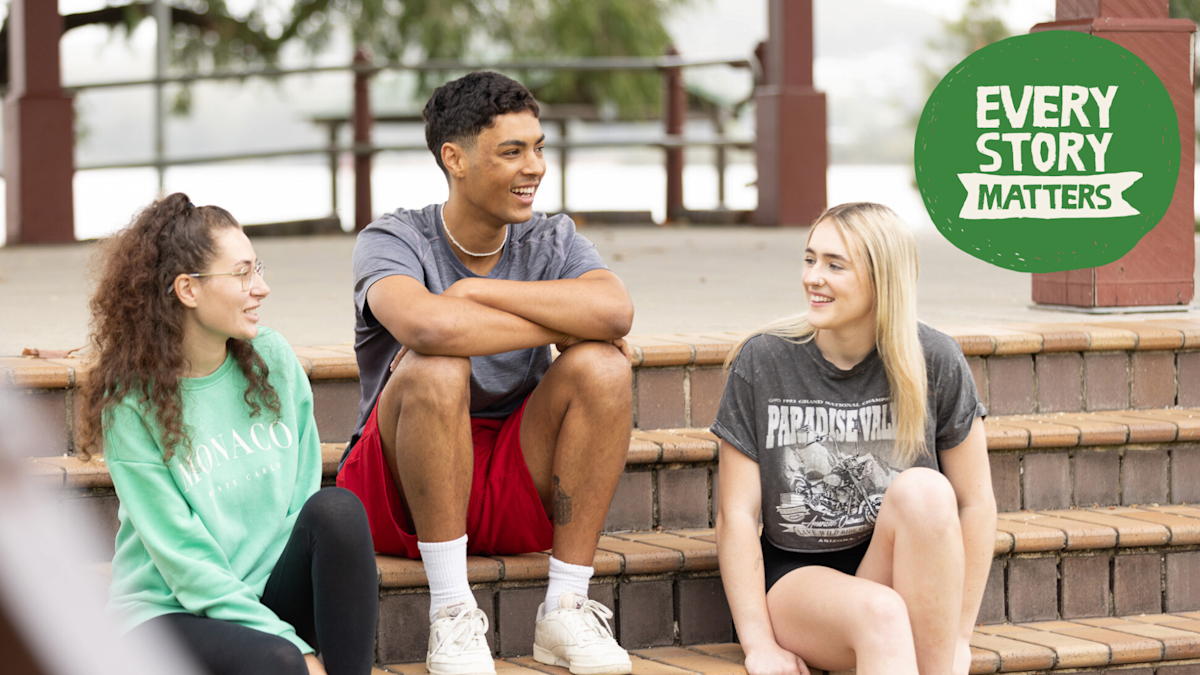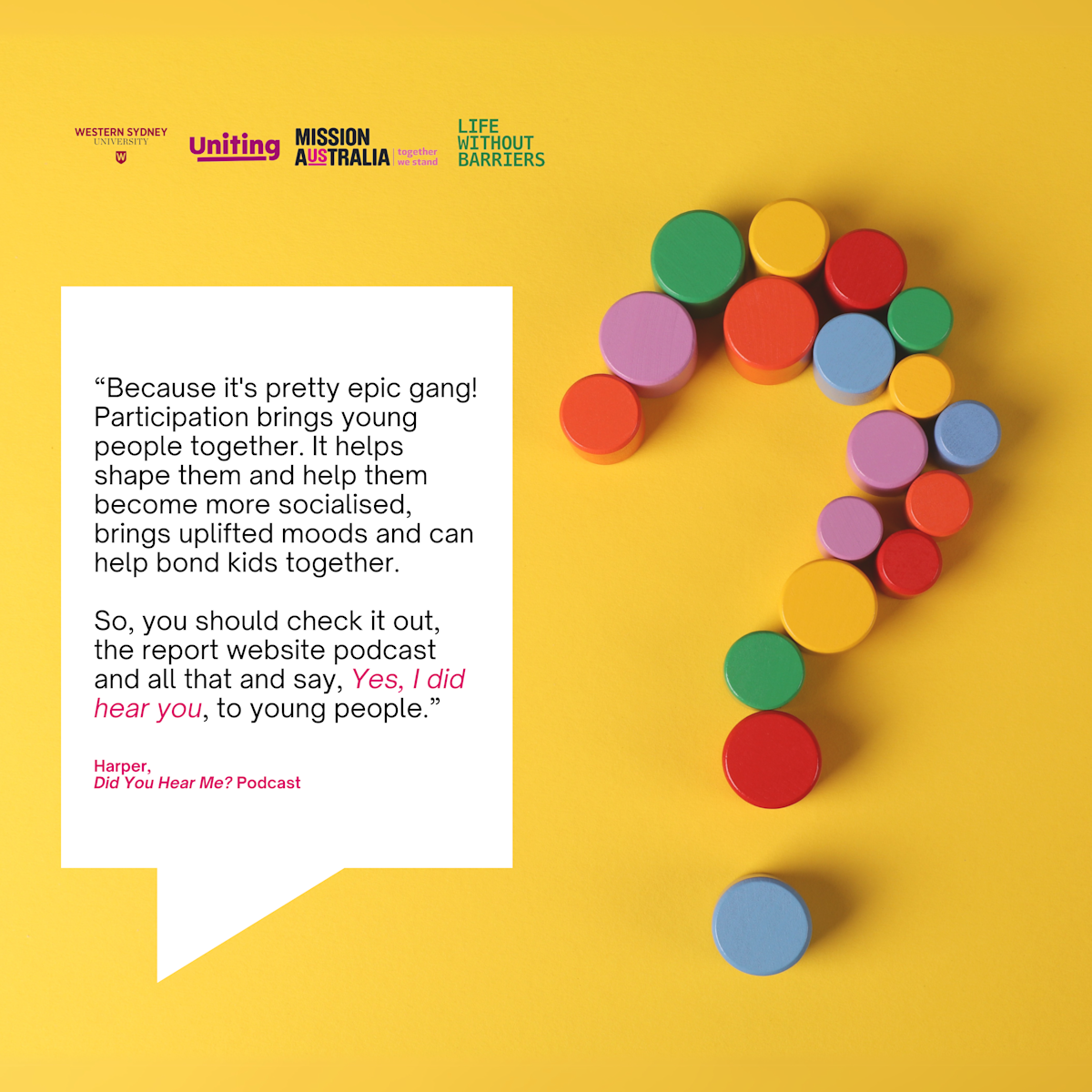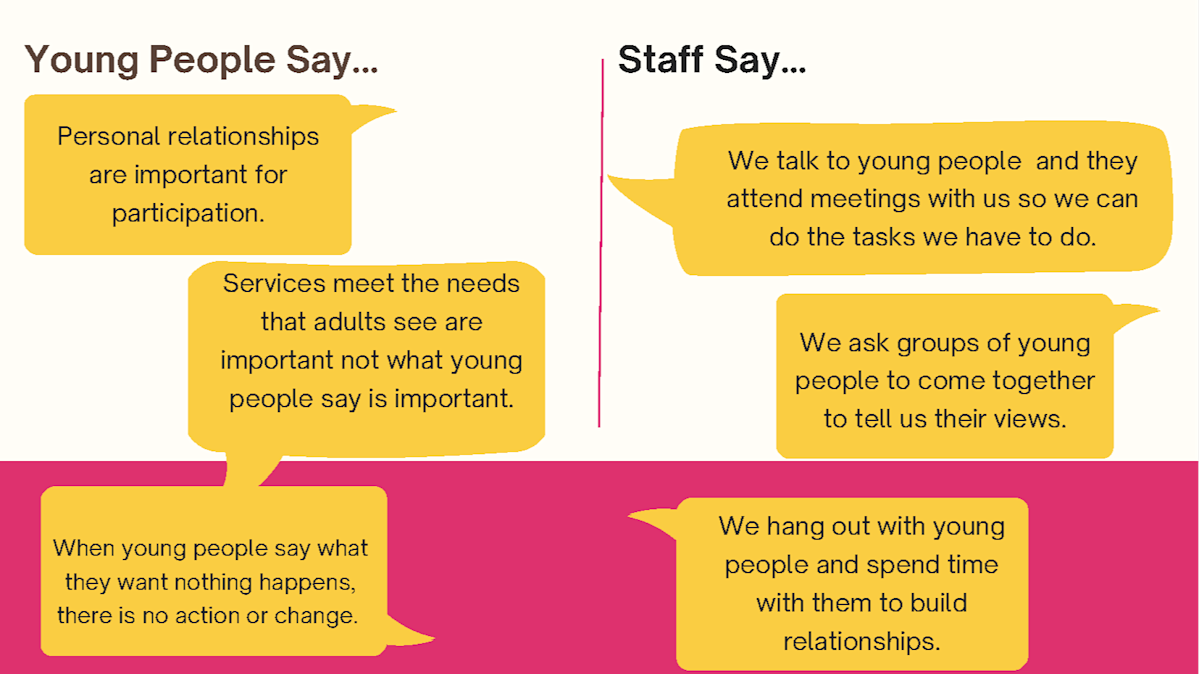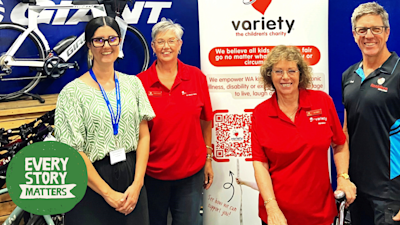Children and young people share their experiences of participation in community services in the 'Did You Hear Me?' research project and podcast.

Image: Three young people sit together on a set of stairs at a park. Every Story Matters - Logo.
In a world where decisions about their lives are often made by adults, children and young people often find themselves without a seat at the table. But what if they were given the chance to truly participate? What if their voices weren’t just heard, but valued?
The research project Did You Hear Me? Children and Young People’s Experiences of Participation in Community Services, is a collaboration between Uniting, Mission Australia, Life Without Barriers, and Western Sydney University.
The report dives into the experiences of children and young people involved in not-for-profit services in Australia. It sheds light on a disconnect between what children and young people want from their participation in decision-making processes and what the services think they are providing.
"Listen to me, I’m an expert in my own life," said one youth participant.
The report explores and challenges us to reflect: Are we creating spaces where children and young people can feel empowered, engaged, and respected? Or are their experiences shaped by a series of well-meaning but disconnected efforts by adults who think they know best?

Image: Graphic tile with a yellow background, a question mark created with colourful circles, and a white speech bubble with text: "Because it's pretty epic gang! Participation brings young people together. It helps shape them and help them become more socialised, brings uplifted moods and can help bond kids together. So, you should check it out, the report website, podcast, and all that and say, 'Yes, I did hear you,' to young people." Harper, Did You Hear Me? Podcast.
Melinda Clarke, Manager Child Safe Organisation, was involved in the research.
"This research reinforces what we know - that relationships are at the core of meaningful participation. Focusing on positive and supportive relationships with children and young people helps to create ongoing, meaningful participation."
"We know that children and young people’s participation is so important for creating a child safe culture."
The research highlights three key findings:
Children and young people and services do not think about participation and how it happens in the same way.
Sector, organisation, and staff efforts to engage children and young people in decision making are not always experienced as participation by children and young people.
The quality of relationships children and young people have with staff influence how they understand, engage, and commit to participation opportunities.
The message from the research is simple but profound: children and young people are experts in their own lives, and it’s time for us to truly listen.

Image: Graphic tile split with a line down the middle with speech bubbles from young people on one side, and from staff on the other. Text: 1. Personal relationships are important for participation. 2. Services meet the needs that adults see are important not what young people say is important. 3. When young people say what they want nothing happens, there is no action or change. 4. We talk to young people and they attend meetings with us so we can do the tasks we have to do. 5. We ask groups of young people to come together to tell us their views. 6. We hang out with young people and spend time with them to build relationships.
This report is a must-read. It’s a reminder that the voices of children and young people matter, and it’s up to us to create the conditions where they can truly be heard and respected.
You can download the Did You Hear Me? Sector Report here.
You can download the Did You Hear Me? Report Youth Friendly Version here.
The Did You Hear Me? Podcast | The Practice Project
Hear directly from the young people and staff involved in the research through the Did You Hear Me? podcast.
This podcast series shares the experiences of participation from the perspectives of children and young people and community service staff and ways to improve the lived experiences of community services for both children and young people.


